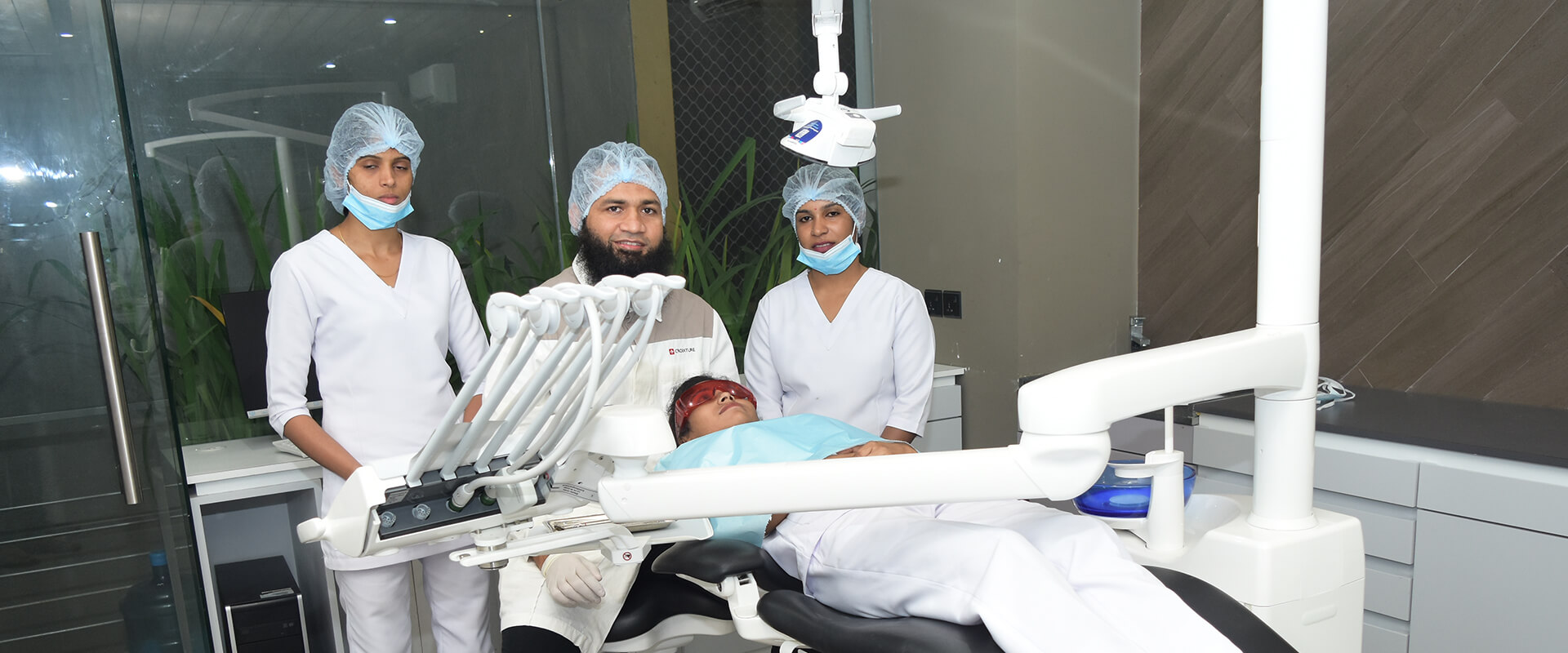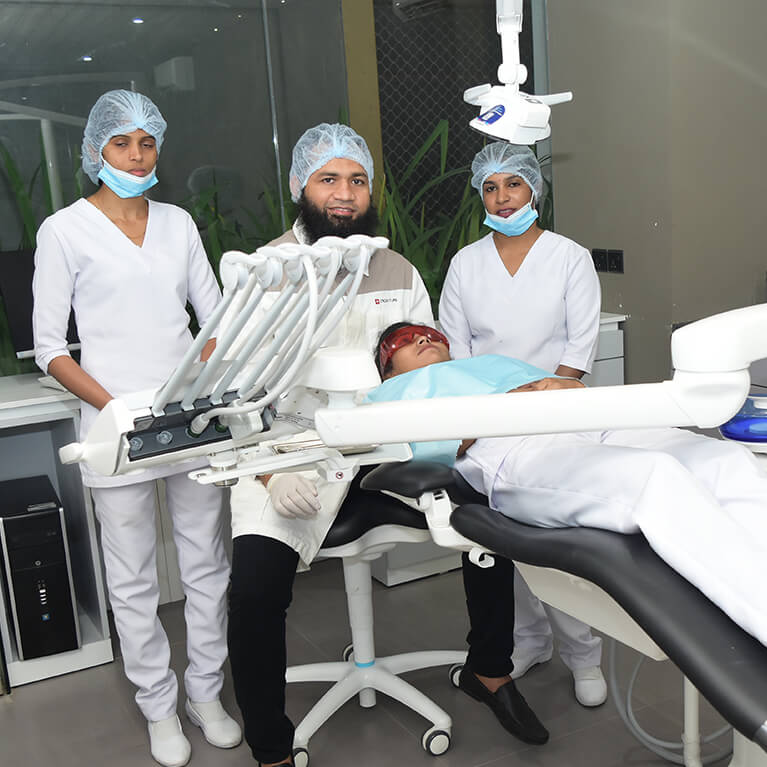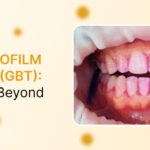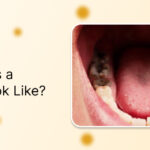How effective is brushing your teeth with no Toothpaste?
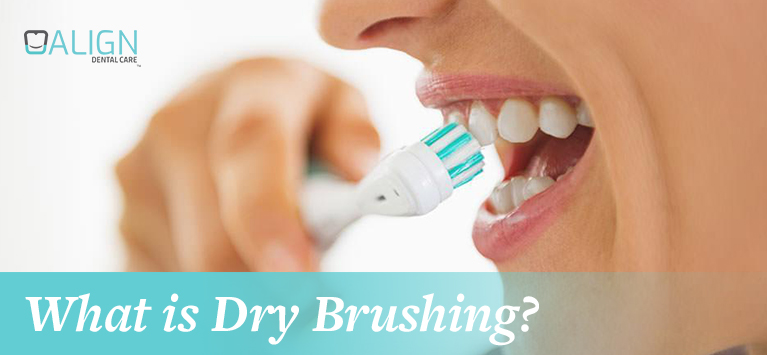
Brush your teeth without toothpaste – This sounds bizarre but dentists call it “Dry Brushing” and proclaim it as a healthy habit.
Dry brushing is the practice of brushing your teeth with no toothpaste or water for a few minutes. After this, you can carry out your regular brushing activities with toothpaste.
Read More…How does improper dental care affect your lungs?
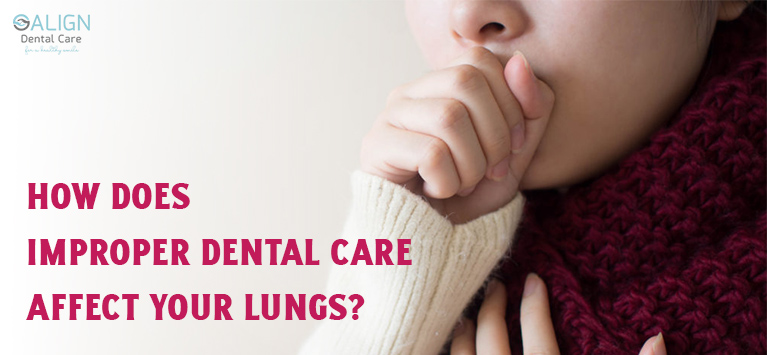
Lung infection is one of the common infectious conditions with which many people are affected around the world. When our respiratory system encounters a problem in its network of organs and tissues, it will tend to lung diseases like Asthma, COPD, Chronic bronchitis, Pneumonia, and even Tuberculosis.
Factors like air pollution, smoking, genes are the main causes of such respiratory illnesses. You might aware of the common causes.
Read More…Interdental Brush – An effective appliance to mitigate plaque & tartar build-up
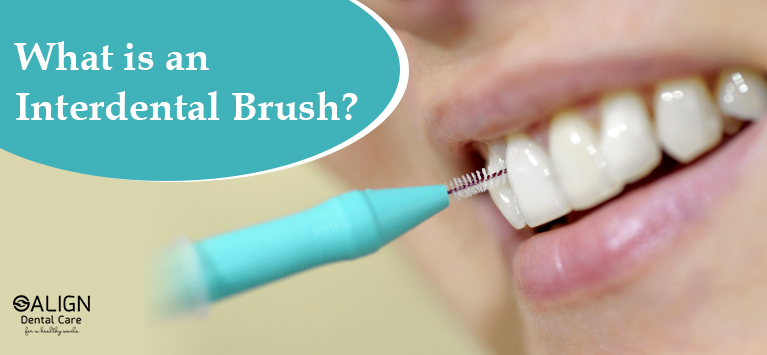
Dental Plaque – The sticky biofilm composed of several strains of bacteria develops on teeth and gums is the root cause for many dental problems like cavities, periodontitis, and so on. Over time, the microorganism colonials continue to thicken the deposits. Untreated plaque and tartar deposits in the mouth release toxic substances that aggregate the build-up of plaque in the arterial walls resulting in cardiovascular diseases.
Moreover, plaque deposits are linked to many impairments, such as Diabetes, Rheumatic Arthritis, Dementia, and much more. To be precise, plaque removal is essential to prevent systemic diseases. Removing food debris and microbes stuck between the teeth will help you to forbid plaque formation.
Read More…Coconut Water – The best drink for your dental health

If you think coconut water is just a fluid saturated with the flesh inside a coconut, then you are wrong. This tropical drink carries the constituents you are taking from sports and energy drinks. It has been recommended as a natural solution to eliminate toxins, improve the digestive system, urination, treat dehydration, and much more.
Do you know that regular consumption of coconut water tends to boost the strength of teeth and gums?
Read More…5 essential oral care tips for babies and infants
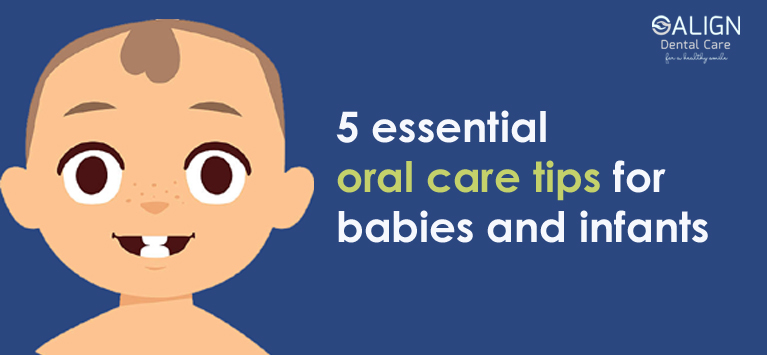
Every parent should begin dental care activities for their babies before the teeth erupt. Before discussing the kids dental care tips, let us disclose the common facts on baby teeth.
The newborn babies have a full set of 20 teeth underneath the gums and those milk teeth development takes place when the infants are in the womb itself. In general, the baby teeth appear when the kid is between 6 and 10 months old. Few infants have 1 or 2 teeth when they born whilst the eruption takes place after 12 months for some babies. Such delayed eruption is not a problem because the first tooth eruption period varies for each baby.
Read More…Why do some people have bad breath in the morning?
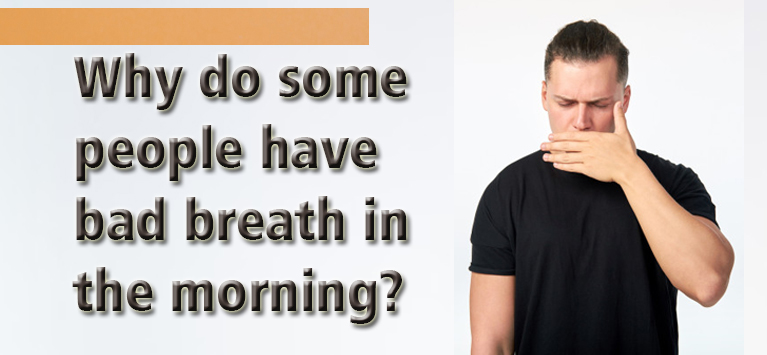
Morning breath is the most adverse side effect of our sleep. The biggest reason for this problem is a decrease in saliva production while you sleep. Less production of saliva creates a situation for multiplying more bacteria in your mouth.
When you open your mouth or snore while sleeping, it easily becomes drier. Dry mouth struggles to fight against smelly bacteria. Sleeping in a back position enables more snoring, that is why it is recommended to sleep in the correct position to fight against morning breath.
There are so many reasons like this for the occurrence of morning breath, but the major reasons are poor oral hygiene and dry mouth.
Dry mouth
If a person who suffers from bad breath still after maintaining good oral hygiene, then the main reason for that is dry mouth. The secretion of saliva is the main reason for the reduction of bacteria in our mouth. As said above, if we sleep, saliva production will be less, which causes bad breath. Some of the medicines also cause dry mouth, which makes morning breath worse.
Poor dental hygiene
Our mouth is the best place for bacteria to breed. If you are not flossing or brushing properly, food particles get easily stuck in between the teeth, or in tongue surface, or along the gum tissue.
Due to the breakdown of these food particles, bad breath is released in the morning time.
If you have any periodontal problem, remember, morning breath is a sign of that. Poor oral hygiene is a reason for that which should need dental treatment.
Foods that you eat
Do you know certain food that you eat in the evening can cause bad breath in the morning? Yes, Even if you brush well, foods that are strong in smelling such as raw onions or garlic can results in bad breath on the next day.
GERD
People who have GERD (Gastrointestinal reflux) or acid reflux always experience bad breath. It occurs when the acid in their stomach returns back through the oesophagus while they sleep at night.
Smoking
The use of tobacco and smoking habit is one of the major causes of both general bad breath and morning bad breath. Smoking causes dryness in your mouth and creates more risk of getting gum disease. You already know, smoking is injurious to overall health. Keep it in mind and reduce or stop the habit.
Neglecting dental check-ups
While brushing and flossing regularly keeps your oral hygiene in a great way, additionally, it is recommended to visit a dentist twice a year to examine your mouth. Proper oral cleaning keeps your oral hygiene in a better way.
Quick tips to overcome these problems
Brush and floss regularly
Rinse your mouth after each meal
Chew sugarless gum to produce more saliva
Eat more green leafy vegetables
Keep your body hydrated
Stop smoking
If the problem still continues even after following these quick tips, contact us or book an appointment with us.
Why should you replace your toothbrush often?
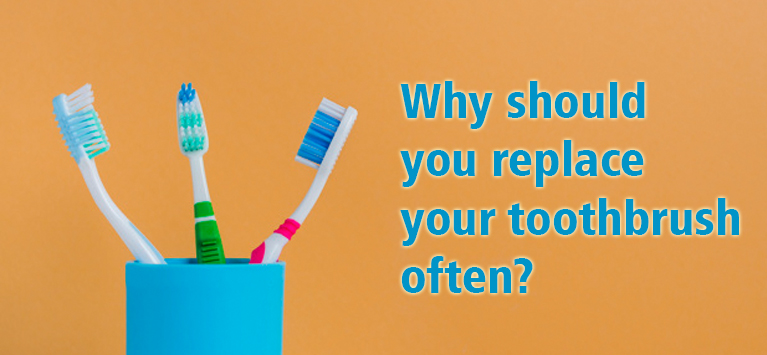
Many of us know that our toothbrushes are not meant forever to last. But it will be difficult to find out when our favorite bristles are approaching their normal lifespan.
You may be shocked to find out that your toothbrush should always be replaced every Twelve to Sixteen weeks as per the manufacturer’s instructions and dentist’s advice.
There are still scenarios where the toothbrush may need to be replaced earlier.
When an electric toothbrush or manual toothbrush head is not changed when it wants to be, it can damage your oral health and cause infection. However, there are essential rules and guidelines you should implement to keep your dental health optimum
Replace It When Bristles Are Frayed
Take a look at your toothbrush. Are all the bristles frayed out in various directions?
Are your brush looks flattened, just like you scrubbed it up with a brick wall?
Probability is, the teeth are being scrubbed too hard. All the added pressure ensures that the bristles are frayed in every way.
If bristles are frayed, they cannot effectively clean the teeth. So, soften your grip, lower your pressure, and let the tips on the bristle perform their job the way they’re intended!
Overaggressive tooth brushing can cause serious problems, such as worn-off enamel and gum recession. If you are brushing too hard, how often you are replacing your heads of the toothbrush?
After Being Sick
You should know this thing, you have to replace your toothbrush after being recovered from illness. The germs on the toothbrush have a high chance of re-infecting yourself even though you start feeling better.
You should throw it away. It’s not good to keep those germs inside your mouth, bringing your immune system to function again and again.
Saying it again, throw out the toothbrush. Especially when it is something for which you are being treated with antibiotics. Especially when it is something for which you are being treated with medication. The thumb rule is usually to throw it in the bin after a day or two before you start your prescription.
That can be really sad to do, particularly when we’re speaking about your head of an electric toothbrush or beloved toothbrush. But getting sick again really isn’t worth it.
Germs on Bristles
There are a variety of tips and tricks out to get your toothbrush “sterilized.” But the fact is, germs in those little bristles get down significantly, particularly at the bottom.
Even though you regularly wash your toothbrush, it’s necessary to keep up with your toothbrush or toothbrush head replacement. They’re just really stinky.
It also applies to the heads with an electric toothbrush. The germs may not be noticeable to you, but they are there. Even if it has a unique UV light built in the handle, you will need to swap it out, because at some point those layers of biofilm would be too hard to penetrate.
Importance of replacing
The toothbrush has designed bristles specifically to clean your teeth. If they get dirty or frayed, your brush will not be able to do its task. That is applicable for both electric and manual toothbrushes.
So, you got to do the right thing? Throw it away. How frequently? Every 3 months, the experts say it.
Different types of bad breath

Bad breath or Halitosis is a common dental problem similar to periodontal issues and tooth decay. People with this disorder hate to open their mouths and speak freely because of the nasty smell in their mouth. This problem affects their daily life as nobody likes to talk with them or stand near them due to the unpleasant odor.
The food particles stuck on our mouth is breakdown with the help of bacteria. This bacteria release some compounds with a bad smell that is responsible for the bad breath.
Bad breath occurs not only due to these bacteria but also because of other health issues. However, if you suffer from bad breath, the first step you have to take is a dental examination. There are some main reasons for bad breath, they are
- Poor oral hygiene
- Some drugs and medications
- Smoking
- Dry mouth
- Other health issues
Based on these reasons bad breath can occur in different ways. They are
Diabetes breath
One diabetic patient’s human body produces less insulin. Therefore his/her body requires to burn higher fat. Such a process of burning fat delivers a chemical called “ketone” The ketone is another factor behind the mouth’s nasty odor.
Chronic kidney failure is another cause of bad breath in diabetes. It produces fishy or ammonia smell. Also called uremic fetor, the volume of urea in the saliva will be high and its breakdown to ammonia produces the smell.
Liver breath
Liver breath occurs due to liver failure that produces sweet and rotten odor in the mouth.
Drug breath
Consumption of certain drugs and medications dries your mouth by absorbing saliva. Medicine to treat diseases like asthma, obesity, and Parkinson’s disease are strong to produce poor drug breath.
Gut breath
Some stomach acids are produced if our digestive system is disturbed or obstructed. These acids are responsible for bad breath, which falls under the division of gut breath.
Menstrual breath
Women gets easily affected by gum diseases during the menstrual period. During this period the secretion of saliva in their mouth will be less. Due to this their mouth gets dried easily leading to bad breath.
Lung breath
Lung infections are the reason for lung breath. Some of the main lung infections included here are Bronchitis, emphysema, pulmonary abscess, pneumonia, and TB. It is the primary symptom of lung cancer. Other problems like cystic fibrosis and Asthma also produce bad breath.
Tonsil breath
Two tiny pads of glandular tissues located at the edge of our throat are called tonsils. If some food particles get stuck between them, it becomes harder and develops into tonsil stones. These tonsil stones are also a reason for bad smell in the mouth.
Metabolic breath
Consuming foods that have low carbohydrates and fewer nutrients is also one of the reasons for bad breath. In fast foods, there will not be any sufficient nutrients, which makes it difficult to burn fats. To burn more fat, ketone is produced, that is a reason for bad breath.
These are some of the types of bad breath occurs due to various health issues. People who get affected due to halitosis doesn’t know whether the problem occurred due to oral issue or other health issues. However, visit a dentist to know the reason for your bad breath and prevent any disease early.
Poor oral care increases the risk of Alzheimer’s disease

Are you experiencing poor oral hygiene? Do you know that there is a risk of Alzheimer’s disease associated with bad oral habits? Does poor oral hygiene lead to Alzheimer’s disease? Here ‘s what you should know…When oral hygiene is neglected, bacteria called Porphyromonas gingivalis enters the bloodstream through daily habits such as eating, chewing and the way the teeth are brushed. This can be carried to various parts of the body especially the brain and results in unwanted diseases.
Read More…Tips to care for Dental Implants

Dental implant surgery has been one of the most popular oral surgeries in recent times. Dental implants are performed for a myriad of reasons and help provide relief to patients. Right from replacing a missing tooth to reducing the impact of an accident, dental implants are indeed very diverse when it comes to their applications.
Read More…




